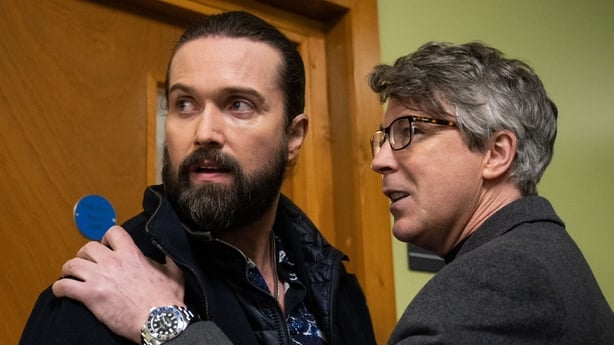For almost 100 years, RTÉ has been central to the telling of Ireland's unique story. That role is more vital today than ever before.
Stories matter. It’s in telling stories that we connect. It’s in listening to stories that we understand and adjust our perspectives. It’s in watching stories that we expand our imaginations. Our children learn through stories. And it’s nearly always stories that make us laugh out loud.
Stories are a central fuel of our culture when they are shared, heard and experienced by many. It is the job of storytellers - be they journalists, writers, singers, painters, creators, editors or producers - to find, create and share stories. It is these stories that become part of our collective consciousness and our shared identity.
For almost a hundred years, RTÉ has been central to the telling of Ireland’s unique daily story, beginning first with radio, followed by television and, more recently, through digital. In that century, RTÉ has been a leading curator of our national story, framing and distributing the work of some of Ireland’s most-accomplished journalists, storytellers and people from every corner and community across the country.

Universally accessible and obliged by statute to be independent, RTÉ has a unique responsibility to be responsive to the interests and concerns of the whole community. This is a challenge and a responsibility we here in RTÉ strive to meet every day.
Often our journalists seek to tell stories that many, particularly the powerful, don’t want to be told.
RTÉ creates a public space for listening and reacting. In times of tragedy, the public broadcaster creates a space for the country to reflect, to grieve and discuss. At other times, we celebrate the best us – our sporting teams, our musicians, our children on The Late Late Toy Show. Through drama we tell stories that both entertain and challenge. Through documentary we explain and reveal different aspects of life in Ireland, and beyond – perspectives that often might remain obscured from us all. On radio in particular, the most intimate of mediums, we give space to personal testimony from all walks of life. In recent years digital technologies have given us a suite of new tools to reach and engage and offer audiences much greater convenience and control.

We are living in an age where we are immersed in stories, programming and content of all kinds from all over the world; on our phones, screens, radios, and smart speakers; and across social media, broadcasting and streaming services. We have never had so much to choose from.
Within this world, we know that RTÉ must fight for your attention, your trust, your interest and your time. We know we have to constantly refresh what we do; we know we need to invest in new technologies, and new skills, and find and keep new voices and talent.
But we also know much is at risk if we don’t invest in what we do. At present RTÉ does not have the resources to deliver the level, range and quality of programming, content and services that we know the public wants from us. A diminished RTÉ does not serve any public interest or other Irish commercial interest. In short, it will simply mean less: less Irish drama, less Irish journalism, fewer documentaries, a diminished independent production sector and a further acceleration of the dilution of Irish culture with US and UK perspectives taking an even greater hold.

For all the brilliance of the programming available on Netflix, Disney +, Amazon or Apple TV – beyond one or two one offs, none of these services have shown any interest in commissioning programmes that reflect contemporary Irish life.
For all the dynamism and scale of social media networks, we see that people struggle to trust them as sources of impartial news or information.
For all the utility of streamed music services, do they really offer the same intimacy and relevance of national or local radio, focused on and responsive to our lives and the needs of our communities?
At the heart of a diverse and vibrant sector, I believe Ireland needs a public media organisation that has the scale and resources to guarantee a strong and distinctive Irish voice; one that is independent, freely accessible, focused on Irish stories; and one that allows for national public debate and discussion. Ireland needs a public media service that is accountable not to shareholders, individuals, or the government of the day, but to the public. This is the ultimate promise of RTÉ.
I believe that promise is worth defending, and supporting, so that it can be renewed for generations to come.




